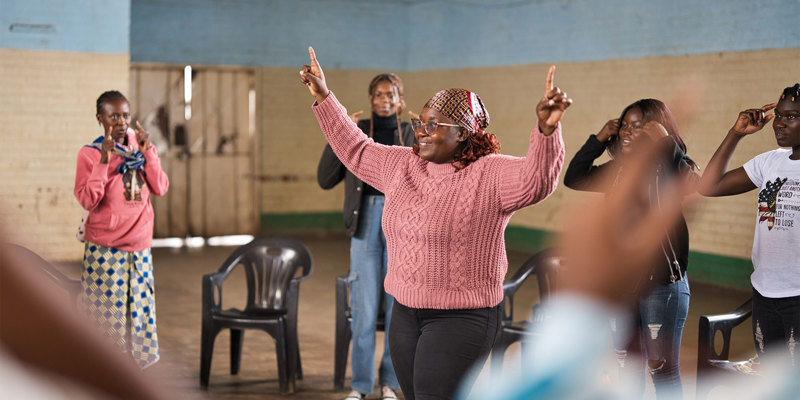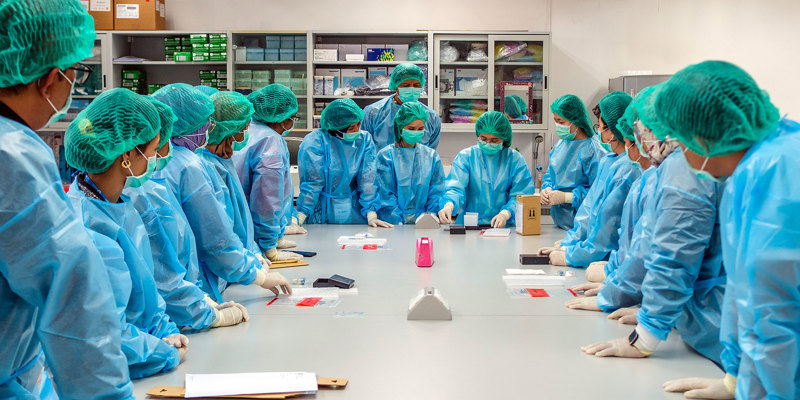Global Fund Welcomes Sustainable Development Goals
25 September 2015
GENEVA – The Global Fund joins the endorsement by world leaders of the United Nations Sustainable Development Goals as a landmark opportunity to improve the lives of billions of people worldwide and promote opportunity and social justice.
As a 21st-century partnership created to accelerate the end of HIV, TB and malaria as epidemics, the Global Fund fully embraces a comprehensive approach to development challenges, such as stressing coordination between health and education that puts adolescent girls and young women front and center.
"The tremendous challenges that face us call for an integrated approach and mindset,” said Mark Dybul, Executive Director of the Global Fund. “The fight against HIV, TB and malaria is connected to countless other efforts that help people create opportunity. In order to prevent HIV infections in adolescent girls, we must strengthen education. To fight tuberculosis in crowded urban slums, we must improve living conditions. To get rid of malaria, we must build strong, resilient systems for health."
The broad and participatory process of arriving at these global goals underlines the partnership approach with more inclusivity and deeper engagement in determining the future of global development. It symbolizes a new era of shared responsibility and mutual accountability for participation of diverse groups of countries and people in determining the future.
Programs supported by the Global Fund are already making progress towards the Sustainable Development Goal of ending the epidemics of HIV, TB and malaria, and towards other goals such as reducing maternal mortality, ending preventable deaths of newborns and children under 5, ensuring universal access to sexual and reproductive health care and achieving universal health coverage, including access to quality health care and medicines and vaccines for all. To achieve these goals, the Global Fund works in partnership with organizations working to improve education, to fight poverty, and to improve human rights around the world.
The majority of Global Fund programs are in low-income countries that are most afflicted by poverty, and where unequal opportunity and burden of disease remain the most pronounced. In line with the spirit of leaving no one behind, Global Fund investments are also reaching marginalized populations in middle-income countries, where the majority of people affected by HIV, TB and malaria now live.
As the Sustainable Development Goals lay the groundwork for how to address the challenges of the next 15 years, the achievements in global health in the 15 years since the Millennium Development Goals can serve as a model for what can be done when communities, civil society, governments, international organizations and the private sector come together and aim for a common goal.







